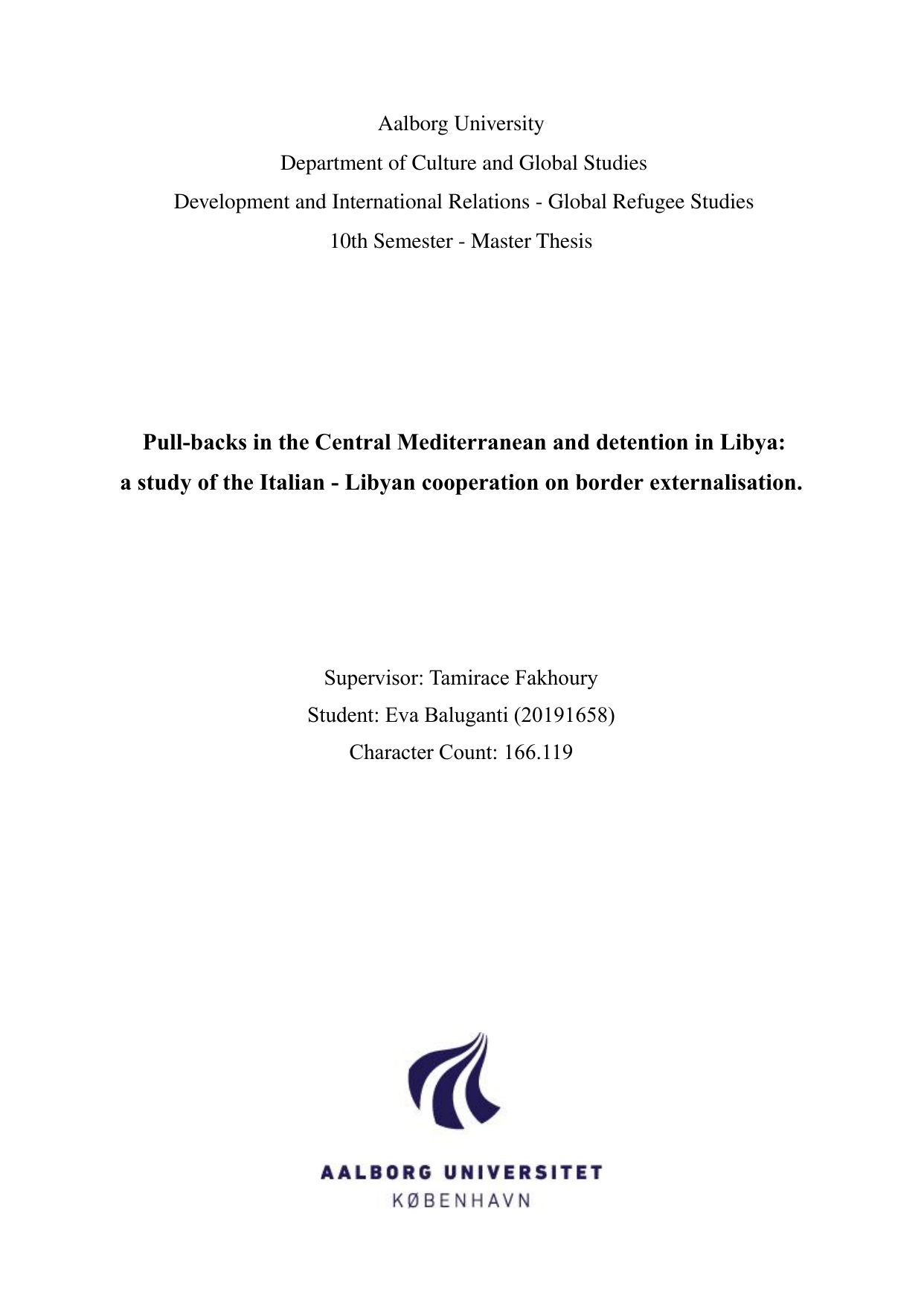
Pull-backs in the Central Mediterranean and detention in Libya: a study of the Italian - Libyan cooperation on border externalisation.
Author
Term
4. term
Education
Publication year
2021
Submitted on
2021-05-27
Pages
76
Abstract
Drawing on the Italian-Libyan cooperation on migration control, the thesis sets out to answer the following question: How has the implementation of current policy provisions and practices for external migration control between Italy and Libya reinforced informal actors on the ground, and what are the consequences on migrants’ lives? To answer the question, the thesis examines the main policy provisions set in motion with the signature of the Memorandum of Understanding in 2017. The latter is an agreement that reinforces and consolidates bilateral cooperation on external migration control between the two countries. It further aims to reconstruct the Libyan institutions and infrastructures responsible for border and migration management with a view to completely outsourcing responsibility for containing migrants to Libya. The main practices that will be analysed are the pull-back operations carried out by the Libyan Coast Guards and the detention of intercepted migrants in Libyan detention facilities. The thesis employs qualitative mixed research methods including desk research, policy analysis, and case studies to collect and triangulate a different array of data from various sources. Conceptually, I employ literature on policy implementation to link border externalisation research with studies that aim to ground externalisation policies in third countries. Therefore, at a theoretical level, the argument guiding this thesis is that border externalisation literature can be enriched by the study of how third countries implement externalised policies for border control. The key findings of the research are the following. Firstly, by embedding the policies of external migration control in the context where they take place, one can observe frictional encounters and discrepancies between policy provisions and local dynamics. These are exemplified both by the way informal actors in Libya influence and contest policy implementation, but also by the controversial outcomes of this bilateral cooperation which ends up reinforcing networks of informality and internal fragmentation in Libya. Secondly, cooperation between Libya and Italy on external migration control contributes to dispersing governance and deflecting accountability over migrants’ lives both in the Mediterranean and in Libyan detention facilities. Indeed, these policies for externalised migration control engage various actors in complex governance dynamics which blur questions over responsibility, transparency, and respect for obligations. Ultimately, this impacts migrants’ lives negatively, as they are increasingly exposed to degrading living conditions, violence, tortures, extortion, sexual and physical violence, enforced disappearance, forms of border-induced displacement, and death.
Keywords
Documents
